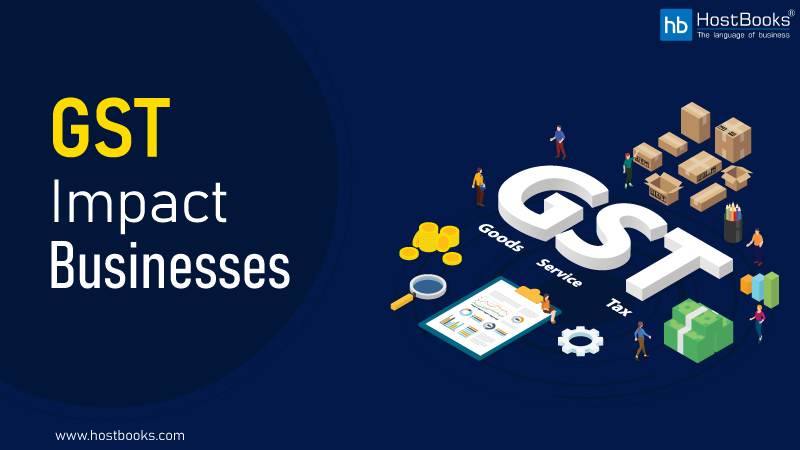GST Impact on Businesses

The Goods and Services Tax (GST) is a comprehensive value-added tax system implemented in India in 2017, replacing the previous system of multiple taxes levied by the central and state governments. The GST has had a significant impact on businesses in India, affecting pricing, compliance, and supply chain management.
One of the major impacts of GST on businesses is the change in pricing. GST has different tax rates for different goods and services, and businesses have had to adjust their prices to account for the new tax structure. The GST council has also revised GST rates for certain goods and services several times, which has added to the confusion for businesses.
Another impact of GST on businesses is the increased compliance requirements. GST requires businesses to file regular returns to report their tax liability, and businesses have had to invest in technology and personnel to ensure compliance. Additionally, businesses have to be registered under GST and obtain GSTIN number. This has led to increased compliance costs for businesses, particularly small and medium-sized enterprises.
GST has also affected the supply chain management of businesses. GST allows businesses to claim credit for taxes paid on inputs (goods and services used in the production of other goods and services) against their output tax liability (taxes charged on goods and services sold). This has led to a shift in the way businesses manage their supply chain, with a greater emphasis on maintaining proper documentation for input tax credit claims.
The GST has also had an impact on businesses operating in the e-commerce sector. GST rules for e-commerce transactions, including collection and deposit of taxes, have been a topic of discussion. The GST council has also introduced new rules for e-commerce platforms, requiring them to register under GST and collect taxes from their sellers.
Despite these challenges, GST has also brought several benefits for businesses. GST has led to the simplification of the tax structure and has removed the cascading effect of multiple taxes. This has helped to reduce the overall tax burden on businesses and has made it easier for businesses to claim input tax credit. GST has also helped to increase the transparency of the tax system and has made it easier for businesses to conduct inter-state trade.
In conclusion, the GST has had a significant impact on businesses in India. Businesses have had to adapt to the new tax structure and increased compliance requirements, leading to increased costs. However, GST has also brought several benefits for businesses, such as simplification of the tax structure, reduction of the overall tax burden, and increased transparency. The GST council has been actively working to make GST more business-friendly and reduce compliance burden over the time. Businesses should stay updated with the GST rules and regulations to reap the benefits of GST in the long run.

Try HostBooks
SuperApp Today
Create a free account to get access and start
creating something amazing right now!
















